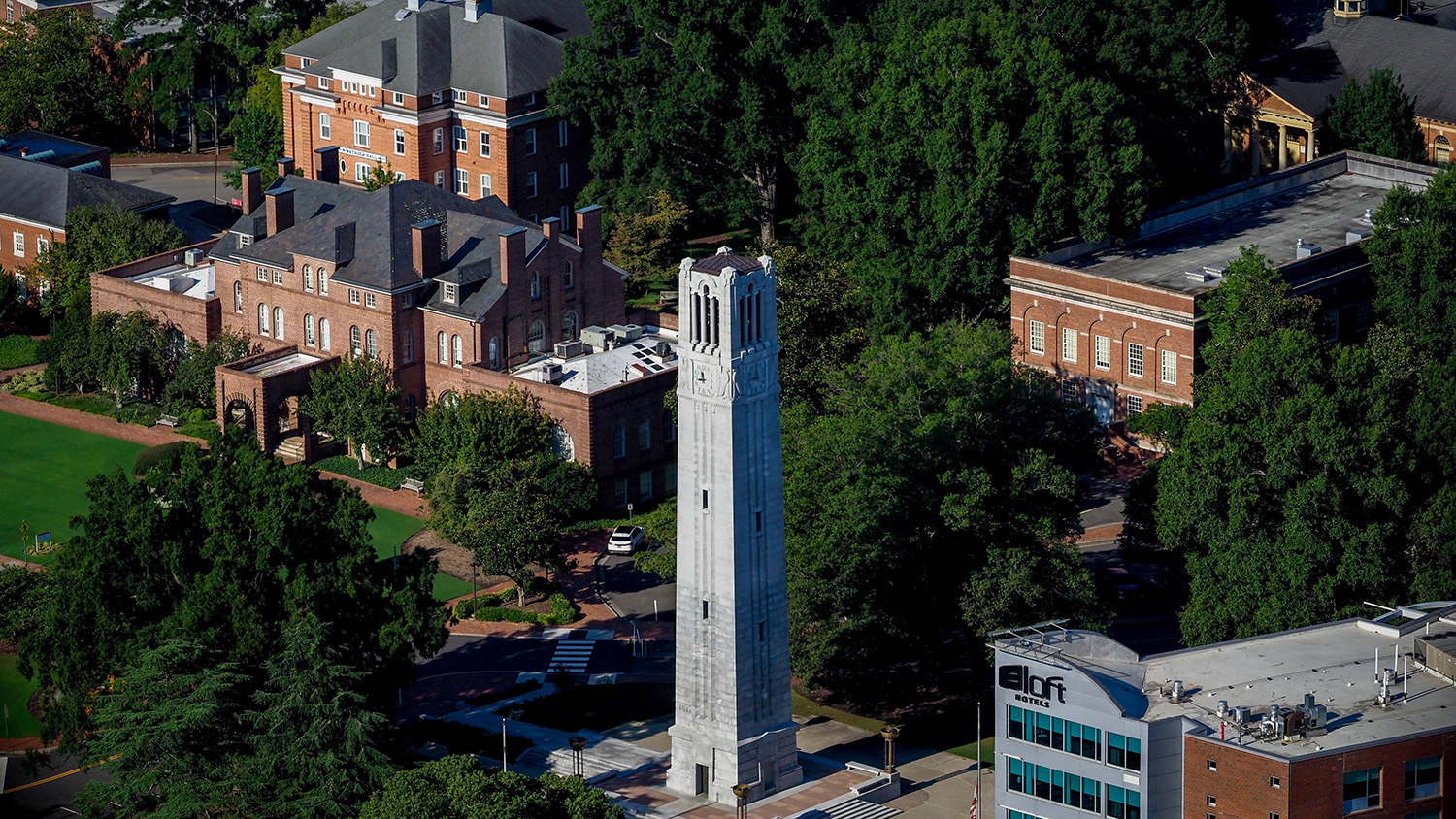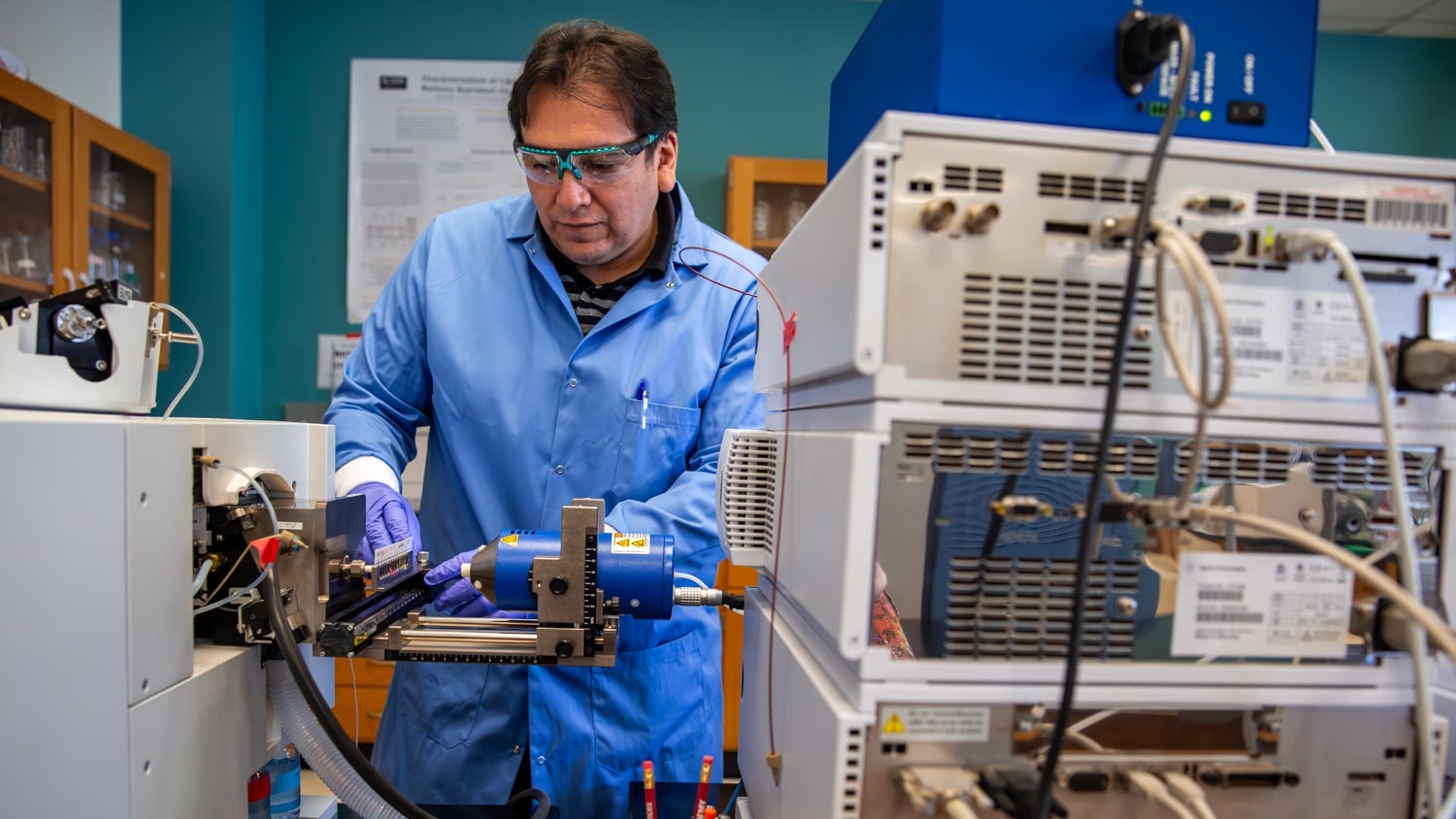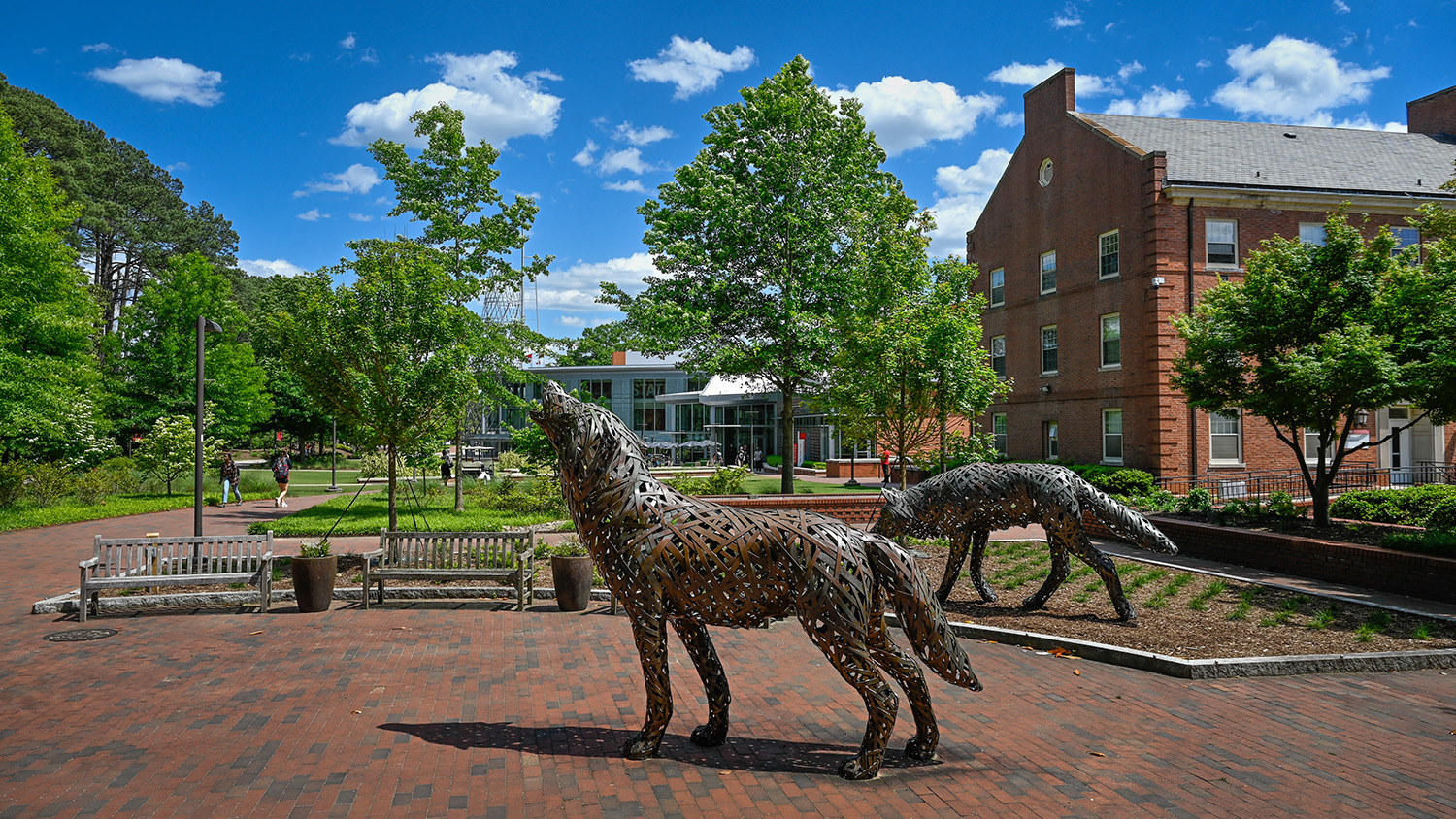Ready for U2
U2’s much-anticipated appearance on campus this Saturday will mark the end of Carter-Finley Stadium’s 11-year hiatus from hosting concerts while highlighting the environmental commitment that the university and lead singer Bono share and employing more than 1,500 temporary workers in the community.
“We’re in this for one reason and one reason only – to boost the economy for the university and the city of Raleigh,” said Ray Brincefield, the university’s assistant athletics director for outdoor facilities. “It’s a great thing to be able to use our football stadium to aid the local economy. Our mission was to employ people who would otherwise not have a job for that week.
“There’s no cost to the athletic department or the university, and no tax dollars are being used to bring this show to Carter-Finley Stadium.”
After football practice ended on Sunday, hundreds of workers began covering the Wayne Day Family Field turf with state-of-the-art aluminum decking specifically designed to protect the integrity of the field’s infrastructure, including drainage, communications and irrigation systems.
The stage arrived Monday. U2’s elaborate, in-the-round setup will soar to Carter-Finley’s upper seating decks – or higher.
Brincefield got a first-hand look at the construction on a recent trip to Massachusetts, where U2 sold out Boston’s Gillette Stadium. Installing the lighting and sound structure over the stage will take hundreds of laborers and steel workers three days, using six cranes and 25 forklifts running continuously, he said.
During construction is taking place, Brincefield is working with Live Nation staff on concert setup and tear down, along with logistics for concurrent events, such as Carolina Hurricanes’ opening game at adjacent RBC Center the day before the concert. Plans including a parking map for 128 tractor-trailers, he said.
As the show draws closer, Brincefield and his staff will be putting in longer hours, supervising the installation of phone and data-access lines, merchandise locations and corporate sponsorships. All the while, the 12-person staff will ensure that the rest of the university’s facilities continue to run like clockwork.
“Hosting this concert is a really big deal for us, and it’s a huge changeover from football,” Brincefield said “That being said, we’re certainly not going to cancel next week’s soccer match, or fall baseball because of this show.
“We’re going to have all of those things and make them work,” he said. “We just have to be wise with our time. When the lights go out at Carter-Finley stadium each night, that’s when we’ll leave.”
Rocking Recycling
NC State chancellor Jim Woodward said the university is delighted to host U2 not only because of the band members’ talent but also because of their collective character and community-minded approach to performing and serving people around the world – an approach that students, faculty and staff share.
“U2 always has been tenacious and focused on and off stage,” Woodward said. “They make a difference – musically, socially, economically – and NC State is proud to be a part of that.”
WeRecycle bins used at Wolfpack football games will be distributed in the stadium during the concert. The program, which began in 2003, is regarded as one of the nation’s premier stadium recycling efforts.
With an increased stadium capacity of almost 64,000, it’s possible fans could set a single-day recycling record during the concert.
“We hope to never have an event at Carter-Finley Stadium without recycling,” Brincefield said. “This program continues to grow – we have had some great corporate sponsors and have been able to expand from inside the stadium to outside, then into Vaughn Towers and the suites as well.”
New Home Turf
Following the performance, concert promoter Live Nation Global will replace the turf at its expense, returning the field to playing condition for a home matchup with Duke on Oct. 10. Live Nation executives, university agronomics experts and football staff took part in the planning, which began in mid-March.
Admittedly, replacing the playing surface in midseason is a less-than-ideal scenario, and no decisions were made without head coach Tom O’Brien, Brincefield said. “We were able to make him feel comfortable that during the Duke game, nobody would even notice that we had this show the week before, so he was comfortable with us going through with this concert.”
Prior to U2, the last performers scheduled to play Carter-Finley Stadium were George Strait and Jimmy Buffet in 1998. However, recently completed stadium renovations put Carter-Finley on par with some of the best and biggest outdoor facilities in the country.
U2, which has bookings in venues such as Pasadena, California’s Rose Bowl and the Dallas Cowboys’ brand-new stadium in Arlington, Texas, selected Carter-Finley over regional possibilities that included Charlotte’s Bank of America Stadium – home to the Carolina Panthers – and Chapel Hill’s Kenan Stadium.
That doesn’t mean that Carter-Finley Stadium will become the next live-entertainment hotspot, Brincefield said. “We’ve barely cracked open the door to being a host for special events – our mission is for our student-athletes. No matter who calls or who shows up, no matter what kind of offer they bring, it starts and ends with our student athletes and we’ll work from there.”
In fact, in their line of work, the single thing that makes Brincefield and his staff the happiest is staying behind the scenes.
“If we leave Carter-Finley Stadium on October 10 and nobody has noticed anything but the game play – nobody says anything about the field – we’ve done our jobs,” he said.
- Categories:


